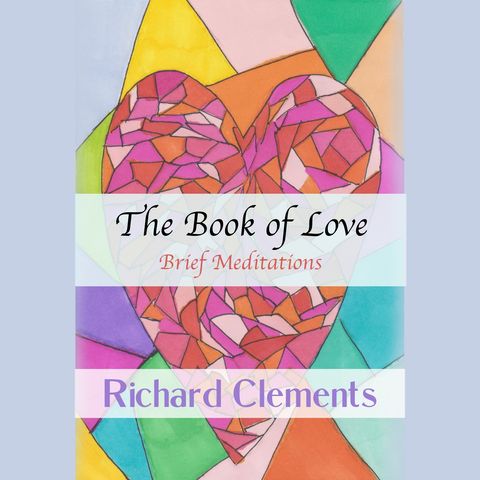An Introduction to the Book of Love by Richard Clements

Download and listen anywhere
Download your favorite episodes and enjoy them, wherever you are! Sign up or log in now to access offline listening.
Description
Introduction It’s All about Love “Love is everything….” Saint Thérèse of Lisieux “Love is the whole and more than all” E. E. Cummings Why did I write The Book of...
show more“Love is everything….” Saint Thérèse of Lisieux
“Love is the whole and more than all” E. E. Cummings
Why did I write The Book of Love? Well, the most important reason was so that whenever I hear the pop song “(Who Wrote) The Book of Love?”[i], I could say, “I did!”
Oh yeah, there were a couple of other reasons too: something about love being the ultimate reality, and something about our ultimate destiny hinging on our choice of whether to say Yes or No to love….
But seriously: it turns out that love is what life is all about. Love is the answer to the big questions in life that we all wonder about sooner or later:
Ø Why is there something rather than nothing? For the sake of love
Ø Why are we all here? To share forever in the divine life of God, which is an eternal circulation of love
Ø Why am I, in particular, here? To carry out a mission of love that is unique to me and share forever in the eternal circulation of love
Ø Is there any ultimate meaning or purpose to life? Yes, and they are found in love
Ø How can we attain ultimate happiness? Through love
Ø How can we attain ultimate freedom? Through love
Ø How can we attain ultimate peace? Through love
Yes, it turns out that life is all about love. Not wealth, not pleasure, not status, not power, not knowledge, but love. All of those other things can be good, even very good. But they’re not the ultimate good.
Life is a school of love. We’re all here to learn how to love. We all have our origin in Love, and our intended destination is Love. We are all homo viator: people on the way; travelers; wayfarers; voyagers; adventurers. The problem is, many of us have forgotten what our destination is, or even that we have a destination at all.[ii] We are all on a journey ad Amorem, a journey to Love. Whether we arrive there or not and the condition in which we arrive depend on the extent to which we open or close our hearts and minds to love.
The real Book of Love was written by “someone from above”. There is an “absolute being” (i.e., God), and the essence of that absolute being is love. God did not need the world in order to be God, nor did God need the world in order to be love, but God, purely out of divine love and freedom, chose to create the entire cosmos so that all of creation (including us human beings) could share in the divine life and love of God. In Jesus Christ, God reveals to us that his essence, and therefore the essence of being itself, the essence of life itself, is self-giving love. To give oneself away in self-sacrificial love is to be truly alive. The divine life consists precisely in an eternal circulation of self-giving love among the Father, Son, and Holy Spirit. We were created to share forever in that dynamic flow of love. We were created to dwell eternally in the divine life and love of God, and to pass that life and love on to others. That’s why we’re here. As Hans Urs von Balthasar, the brilliant Roman Catholic theologian from Switzerland, so aptly expressed it, “The meaning of the world is love.”[iii]
However, because love is genuine only if it is freely given and freely received, God gives us the freedom to choose whether to open our hearts and minds to love. Life is a grand drama in which our ultimate destiny, as well as the fulfillment of our deepest desires, hinges on our decision of whether to say Yes or No to love. We can choose to remain imprisoned within the cramped confines of our self-centered, self-enclosed egos, or we can break out of our finitude and into the “immeasurable spaces of freedom”[iv], into the divine life of God, which is an eternal circulation of love.
[i] Originally recorded by The Monotones. Music and lyrics by Warren Davis, George Malone, and Charles Patrick.
[ii] Pearce, Literature: What Every Catholic Should Know, 1.
[iii] Balthasar, Heart of the World, 203.
[iv] Ibid., 144.
Information
| Author | WCAT Radio |
| Organization | WCAT Radio |
| Website | - |
| Tags |
Copyright 2024 - Spreaker Inc. an iHeartMedia Company

Comments